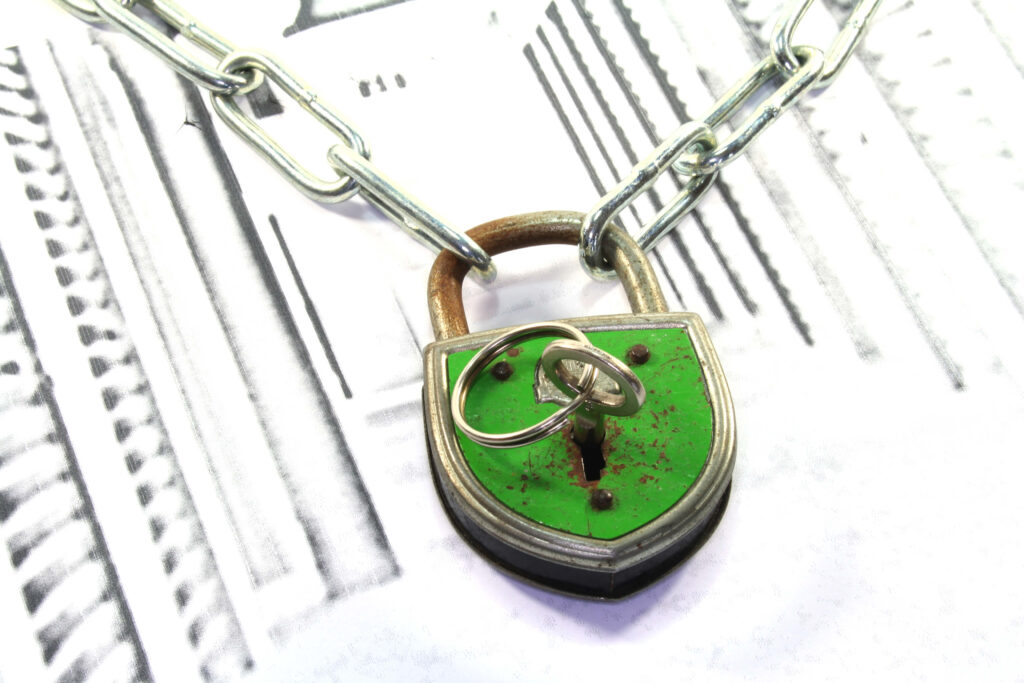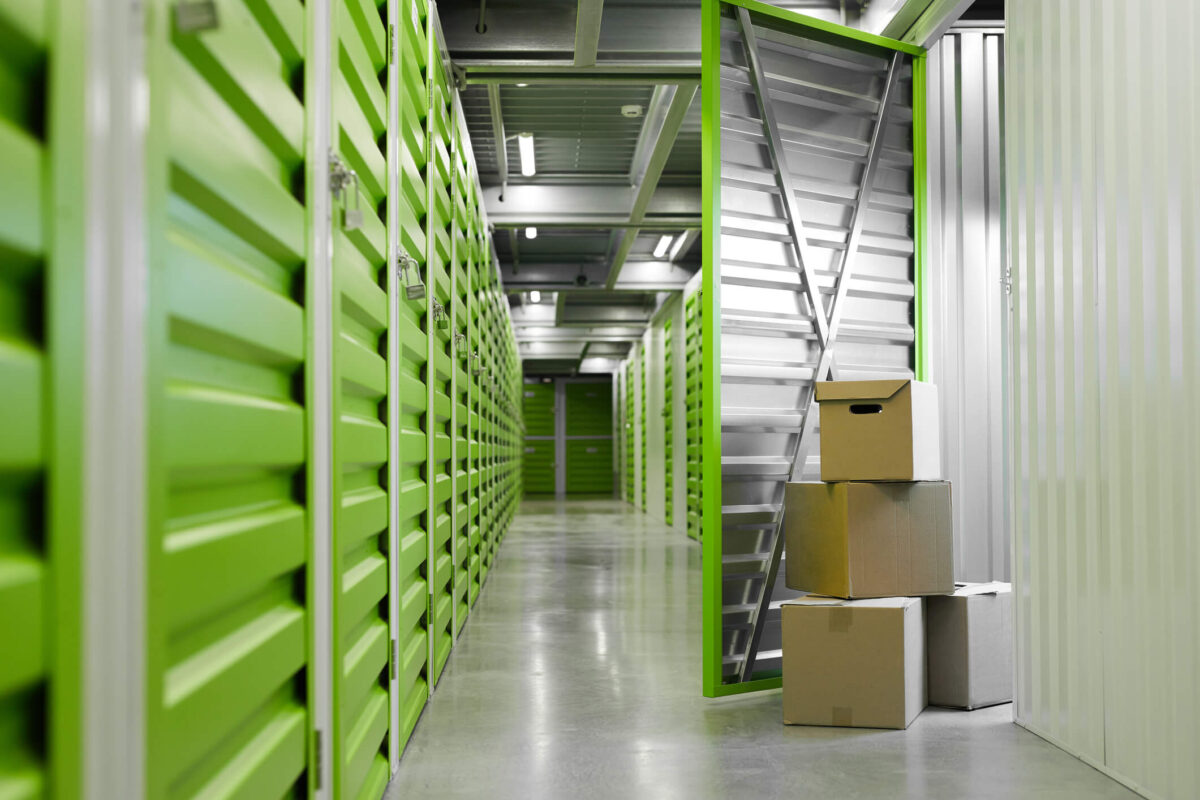Self-storage has become an indispensable solution for individuals and businesses alike. Whether you’re downsizing, decluttering, or safeguarding business records, renting a storage unit offers unparalleled convenience. But while it’s easy to focus on finding a location with adequate space, many renters overlook critical risks such as deterioration, a potential break-in, or the loss of stored items. Failing to choose the correct option or share important information with someone knowledgeable can lead to complications. Additionally, relying on others without thoroughly vetting the storage units may result in unforeseen challenges.
At McDowell Mountain Community Storage, proactive planning and informed decision-making are the keys to mitigating these often-overlooked risks. Below, we dive deep into the factors you should consider to keep your valuables safe, secure, and well-maintained.

The Most Overlooked Self-Storage Risks
1. Humidity and Climate Control
One of the most significant threats to stored belongings is excessive humidity. It can cause irreversible damage to sensitive items, such as furniture, electronics, documents, and clothing. Without proper climate control, you might find yourself dealing with issues like:
- Mold growth, which can destroy fabrics, paper, and wood.
- Condensation leads to rust on metal items.
- Infestation of pests, including insects, is attracted to damp environments.
Always check if the company offers robust climate-control options when choosing a self storage units. Investing a small amount of money upfront in a well-regulated self storage unit can save you significant losses later. Pay attention to details such as the lock quality and ventilation, as these can be a critical line of defense against danger caused by moisture and pests.
Additionally, the number of facilities providing adequate climate control is limited, so finding the right way to compare companies is essential. Make sure to settle for something adequate, as the long-term risks to your stored belongings in poorly managed self-storage units are considerable, especially in regions with fluctuating weather conditions.
2. Security Risks
While most storage facilities advertise their security features, not all offer the same level of protection. Overlooked vulnerabilities include:
- Outdated locks: Basic padlocks often need to be improved against modern tools.
- Limited surveillance systems: Ensure the facility has 24/7 camera coverage.
- Inadequate lighting: Poorly lit areas invite theft and unauthorized access.
Neglecting regulations and ignoring humidity levels can also exacerbate security-related problems, leaving the contents of your self storage unit vulnerable to theft or damage, ultimately jeopardizing the trust and satisfaction of customers who rely on these facilities for the safekeeping of their valuable belongings. storage units vulnerable to damage or loss. For instance, an event like a power outage could compromise security systems, while insufficient oversight from employees may delay response times.
As a tenant, you should also evaluate how well the facility safeguards everything within its premises. Whether you’re storing sentimental stuff or valuable contents, ensuring proper regulation can prevent problems before they arise.
At McDowell Mountain Community Storage, we utilize cutting-edge security systems, robust locks, and dedicated on-site staff to minimize risks. For some, these measures might seem like extras, but they are essential for maintaining peace of mind.
3. Pest Infestations
Another overlooked risk is the potential for pest and insect infestations. Termites, mice, and other critters can cause severe damage to boxes, furniture, and other stored goods. Warning signs include droppings, chewed packaging, or a musty odor. Mistakes in choosing a storage space without proper pest control can result in costly consequences. It’s important to remember that maintaining the integrity of your stored items is part of selecting a reliable facility.
While pests are a significant concern, they are not the only thing that can go wrong. Poor decisions regarding storage can lead to unexpected expenses. Ensuring the facility meets your specific requirements, including pest control and cleanliness, can help prevent these problems.
To combat infestations, ensure your storage facility has regular pest control measures. Additionally, consider these precautions:
- Use sealed containers instead of cardboard boxes.
- Avoid storing food or perishable items.
- Inspect the unit’s cleanliness before moving in.
These decisions will reduce the risk of damage to your belongings and help maintain a safe storage environment.
4. Water Damage and Flooding
Water damage significantly threatens stored items, especially in facilities prone to leaks or flooding. The effects can be catastrophic, from warped wood to destroyed documents. The likelihood of water damage increases if the facility lacks proper maintenance, waterproofing, or drainage systems.
To mitigate this risk, follow these steps:
- Elevate items using pallets or shelves to avoid contact with the floor.
- Store sensitive belongings in waterproof containers.
- Verify that the storage facility offers insurance coverage for water damage.
5. Fire Hazards
Many renters fail to consider the potential fire hazards in a storage unit. A single incident can destroy stored belongings. Key fire risks include:
- Flammable materials are stored improperly.
- Lack of smoke detectors or sprinkler systems in the facility.
A lack of proper security measures, such as a padlock that cannot withstand heat or flame, could increase the expense of recovering items after a fire.
To protect against fire risks, ask the facility about its compliance with safety regulations, fire-resistant building materials, and emergency procedures.
6. Neglecting Insurance Coverage
Many people assume the facility’s insurance automatically covers their facility’s expenses. Unfortunately, this is not always the case. You may face financial losses from theft, flooding, or other disasters without personal insurance.
Before signing a contract, clarify the facility and invest in additional coverage if necessary. Comprehensive insurance can provide peace of mind and protect your valuables from unforeseen circumstances.
7. Improper Packaging
Improper packaging is another common oversight. Poorly packed items are more susceptible to damage, especially during transit or when stacked inside a unit. Consider these tips for safe packing:
- Use sturdy boxes and label them for easy identification.
- Wrap fragile items in bubble wrap or foam.
- Distribute weight evenly to avoid collapsed stacks.
8. Overloading the Unit
Overcrowding your storage unit may seem like a cost-saving measure, but it increases the risk of damage and makes retrieving items inconvenient. Avoid stacking items too high or blocking access to frequently used belongings. Proper organization protects your goods and saves time in the long run.
9. Ignoring Facility Maintenance
A poorly maintained facility can expose your belongings to pests, water leaks, and structural weaknesses. Look for a facility that prioritizes cleanliness and conducts regular inspections.
10. Misjudging the Cost
While the monthly rent for a self-storage unit might seem affordable, additional costs can add up quickly. When budgeting, consider insurance, climate-control fees, and security upgrades. Choose a facility that provides transparent pricing and no hidden fees.

How to Choose the Right Self-Storage Facility
Key Features to Look For
When evaluating potential storage facilities, prioritize these essential features:
- Climate Control: Protect sensitive items from extreme temperatures and humidity.
- Security Measures: Ensure the facility has 24/7 surveillance, secure locks, and controlled access.
- Cleanliness: A well-maintained facility reduces the risk of pests and structural damage.
- Insurance Options: Confirm coverage for potential risks, including theft, fire, and water damage.
Questions to Ask Before Renting
- What security systems are in place?
- Are the units climate-controlled?
- Does the facility provide pest control services?
- What are the facilities on liability and insurance?
- Are there restrictions on what can be stored?
How McDowell Mountain Community Storage Stands Out
At McDowell Mountain Community Storage, we go beyond essential storage solutions to ensure the safety and satisfaction of our customers. Here sets us apart:
- Advanced Security: Our facility has state-of-the-art security systems, including motion-detecting cameras and keypad access.
- Climate-Controlled Units: We offer temperature-regulated spaces to protect against humidity and extreme temperatures.
- Expert Staff: Our experienced team is always available to answer questions and assist with storage tips.
- Transparent Pricing: No hidden fees or surprises—just straightforward, affordable services.
Tips for Maintaining a Secure and Organized Storage Unit
Stay Organized
- Create an inventory list of all stored items.
- Label boxes clearly and keep frequently used items near the front.
Protect Valuables
- Use high-quality locks for additional security.
- Store sensitive documents and valuables in waterproof and fireproof containers.
Regularly Check Your Unit
- Inspect your unit periodically for signs of damage, infestation, or other issues.
- Report any concerns to the facility immediately.
The Final Word: Prioritize Safety and Security
Renting a self-storage unit is more than just finding a convenient space. By addressing overlooked risks—from humidity and pests to theft and fire—you can ensure the safety and longevity of your stored belongings.
At McDowell Mountain Community Storage, we’re committed to providing secure, reliable, and cost-effective storage solutions. Whether you have personal items or important business records, trust us to keep your valuables safe.
Take the first step towards a better storage experience. Contact McDowell Mountain Community Storage today to reserve your unit or learn more about our comprehensive services.
Frequently Asked Questions
1. What are the most common risks to consider when renting a self-storage unit?
The most common risks include humidity damage, security vulnerabilities, pest infestations, water damage, fire hazards, and improper packaging. These factors can compromise your belongings’ safety, so choosing a facility with proper safeguards is essential.
2. How can humidity affect the items in my storage unit?
Excessive humidity can lead to mold growth, rusting of metal items, and damage to fabrics, paper, and wood. Choosing a climate-controlled unit helps to prevent these issues, especially for sensitive items like electronics, furniture, and business records.
3. What security features should I look for in a self-storage facility?
Look for 24/7 surveillance systems, secure locks, and controlled access. It’s also essential to ensure the facility has adequate lighting and well-maintained fences and gates to prevent unauthorized access and theft.
4. How can I protect my stored belongings from pests and insects?
To avoid infestations, choose a facility that offers regular pest control services. Use sealed containers, avoid storing food or perishable items, and inspect your unit for cleanliness before moving in.
5. What should I do to prevent water damage in my storage unit?
Elevate your items off the floor using pallets or shelves, use waterproof containers for sensitive belongings, and ensure the facility has proper waterproofing and drainage systems. You can also inquire about insurance coverage for water damage.
6. Why is fire safety important when renting a storage unit?
Fire hazards can completely destroy your stored items. It is crucial to ensure the facility has fire-resistant materials, smoke detectors, and sprinkler systems. You should also check the quality of locks, as inadequate locks can increase the damage in case of a fire.
7. Do I need additional insurance for my stored items?
While some facilities offer basic insurance, it’s essential to check for sufficient coverage. Consider purchasing additional insurance to cover theft, water damage, fire, or any other unforeseen issues affecting your belongings.
8. What are the risks of improper packaging in a storage unit?
Poor packaging can lead to damage, especially for fragile items. It’s important to use sturdy boxes, wrap fragile items in bubble wrap, and ensure evenly distributed weight to prevent collapse or breakage during storage or transportation.
9. How do I choose a suitable self-storage unit for my needs?
Consider the size of the unit, security measures, climate control options, cleanliness, and insurance offerings. Ensure the facility meets your specific requirements and ask about pest control, maintenance, and additional fees.
10. What steps can I take to maintain a secure and organized storage unit?
Create an inventory list of your stored items, label boxes clearly, and keep frequently used items near the front. Regularly inspect your unit for any damage or pest issues, and immediately report any concerns to the facility.


